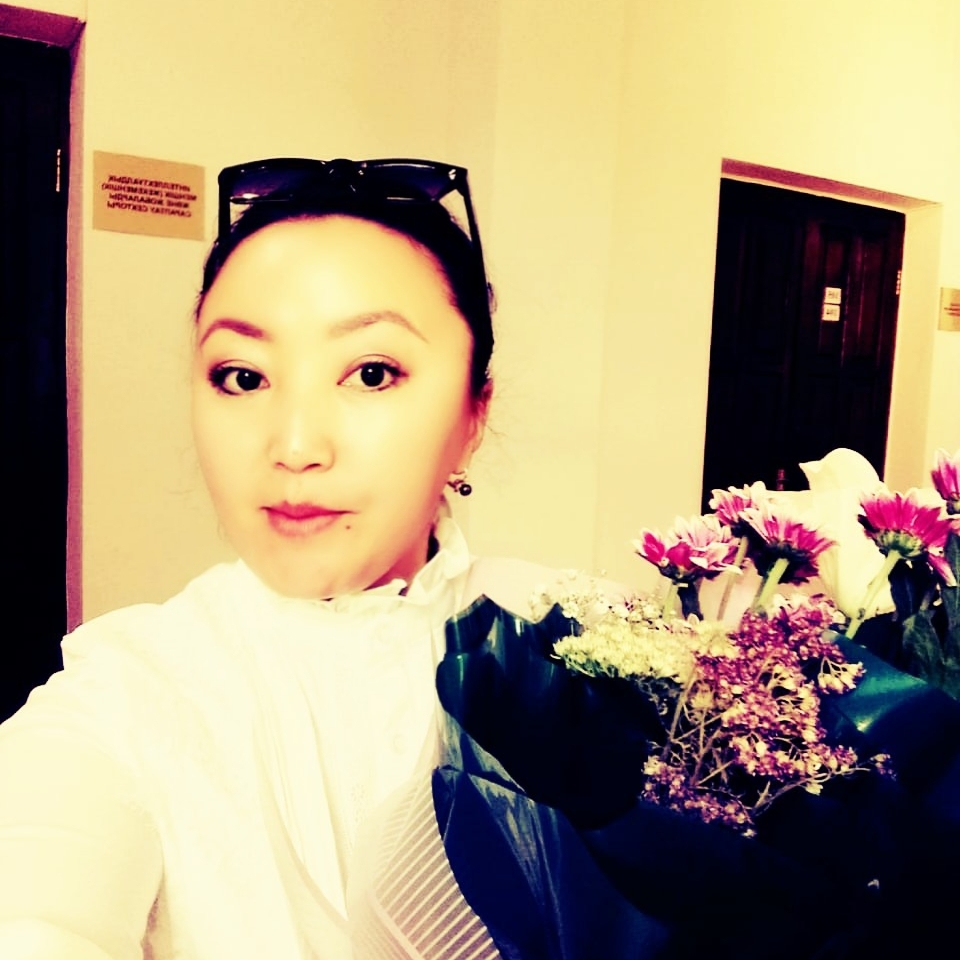
Nokerbekova Nazym Kydyrhanovna
Associate professor
The Department of «Biochemical engineering»
PhD
2004-2015. Boarding school for gifted children No. 4; Secondary school No. 63; SPTU College (teacher of chemistry and biology);
2008-2017. Institute of Plant Biology and Biotechnology (researcher);
2017-2021. Teacher of chemistry and biology of the University "Almaty";
2020. to the present time. Kazakhstan University of Engineering and Technology (Associate Professor);
1999 - 2003 Al-Farabi Kazakh National University; (bachelor). Biology.
2004 - 2006 Kazakh State National Pedagogical University(Master`s). chemistry.
2014 - 2017 Kazakh National Agrarian University (PhD doctoral studies). Soil science and agrochemistry.
2019 - Kazakh National Agrarian University. Doctor of Philosophy PhD.
Project Manager of program-targeted financing and activities jointly with the Kazakh Research Institute of Agriculture and Crop Production on the topic: "Development of organic farming technologies for growing crops, taking into account the specifics of the regions, digitalization and export"
Publications
1. Article "Kazakstanyn ontustik-shygys aimagynda kant kumayy suryptarynyn osip-damu yerekshelikteri". Kazakhstan auyl sharuashylygy gylymdarynyn zharshy magazines. 2016, No.9-10 B.54-58 . Almaty kalasy (E.T.Suleimenov).
2. The article "The effect of mineral fertilizers on the yield of sugar sorghum in the conditions of the south-east of Kazakhstan". COLLECTION OF MATERIALS of the V International Scientific Conference "Society of the XXI century: results, challenges, prospects" 2016, pp.49-53. Stavropol
3. The article "The effect of nitrogen fertilizers on the accumulation of nutrients in plants in various varieties of sugar sorghum". COLLECTION OF MATERIALS OF the International scientific and practical conference of young scientists "SCIENTIFIC VIEW OF THE YOUNG: SEARCHES, INNOVATIONS IN AGRICULTURE".April 6-7, 2017. No. 2. pp. 35-40. Almaty (E.T.Suleimenov).
4. Article "Effect of nitrogen fertilizers on nutrient regime of soils for sweet sorghum under different supply of soils with labile phosphorus". Journal of International Scientific Publications. Agriculture & Food. Volume 5, 2017. pp.440-444. Bulgaria (Suleimenov.T., Sarsenbayev B.A.)
5. Article "The quality of the juice of sugar sorghum plants depending on fertilizing with nitrogen fertilizers in the conditions of south-east Kazakhstan" Research, results.No.4 (76) 2017. pp. 391-399. Almaty (Suleimenov E.T., Kirshibaev E.A.)
6. Article "The influence of nitrogen fertilizers on the quality of sugar sorghum plants on the foothill light chestnut soils of the south-east of Kazakhstan" Bulletin, State University named after Shakarima. No. 3 (79) 2017. pp. 266-270. G. Semey. (E.T.Suleimenov).
7. Article "The influence of nitrogen fertilizers on the structure of the crop and the yield of sugar sorghum grain depending on the availability of mobile phosphorus in the soil". Soil science and agrochemistry. 2017. No. 3. pp. 90-96, Almaty.(E.T.Suleimenov).
8. Recommendation "Recommendations on the cultivation of sorghum crops in the conditions of the south-east of Kazakhstan". SIMMIT representative office in Central Asia and Transcaucasia. Almaty: "Nurly Alem", 2017.(Zhapev R.K., Kunypiyaeva G.T., Karabaev M.K., Omarova A.Sh.)
9. Article "Influence of Fertilizing with Nitrogen Fertilizer on the Content of Amino Acids in Sweet Sorghum Grain". AGRIS . Albanian J. Agric. Sci. Volume 17 Issue III. pp. 166-170. Publ. Date: 30 September 2018. Albania . (Yerkin T. Suleimenov, Rauan K. Zhapayev)
10. Article «The Nutrition Influence of Nitrogen Fertilizers on the Sugar Content of Sweet Sorghum Plants in the Southeast of Kazakhstan» AGRIS. Russian Agricultural Sciences, 2018, vol.44, No1, pp 25-30. (Zavalin A.A., Suleimenov Ye. T., Zhapayev R.K.)
11. Article "Accumulation of nutrients in sugar sorghum plants depending on nitrogen fertilization on various backgrounds of soil availability with mobile phosphorus". Agrochemical Bulletin. No.6, C.29-33 Moscow 2018. (Suleimenov E.T., Zhapaev R.K.)
12. The influence of nitrogen fertilizers on the yield and quality of sugar sorghum in the conditions of the southeast of Kazakhstan. Agro-industrial complex and food industry. Scientific and technical journal.Almaty city. 2020 No.4 p.7-11